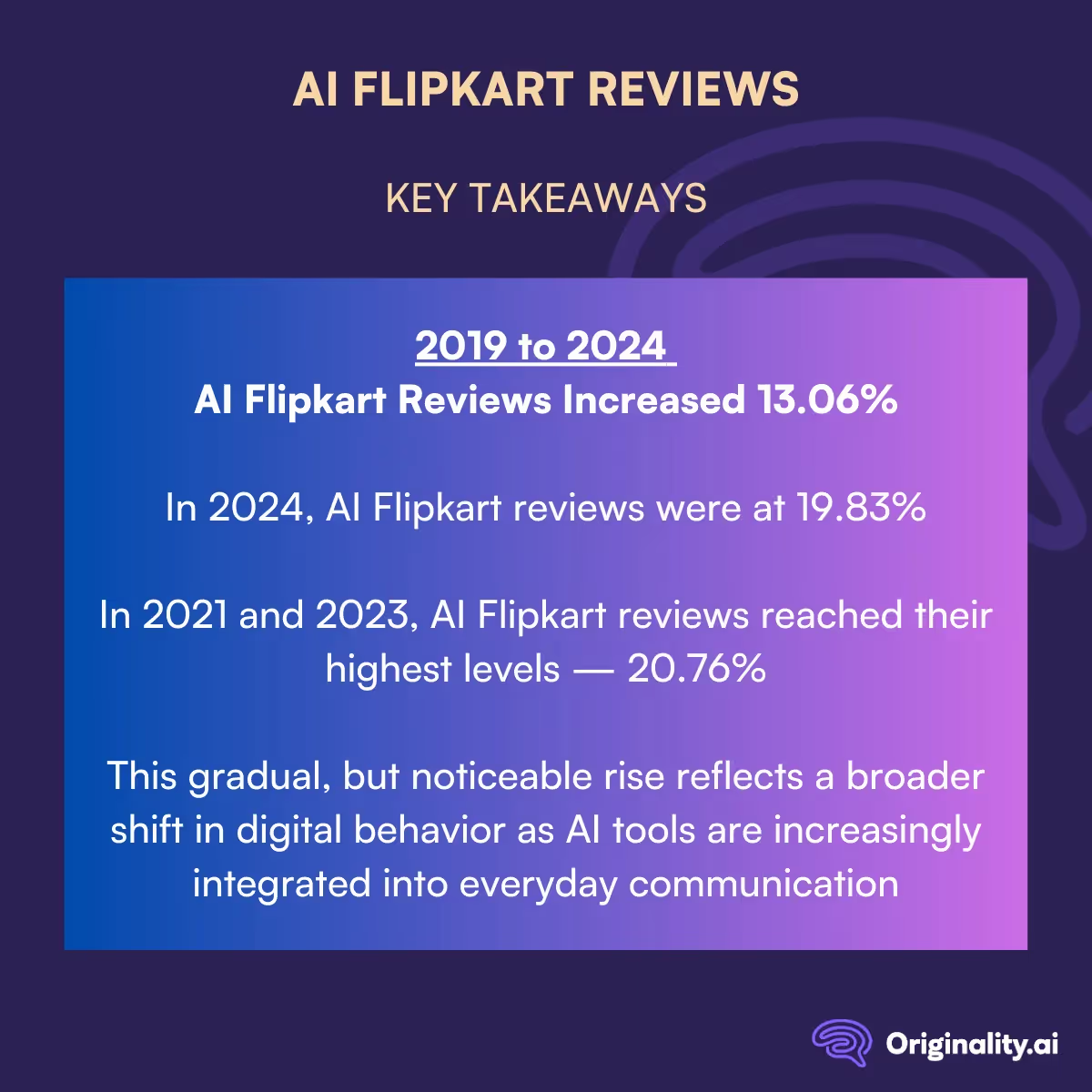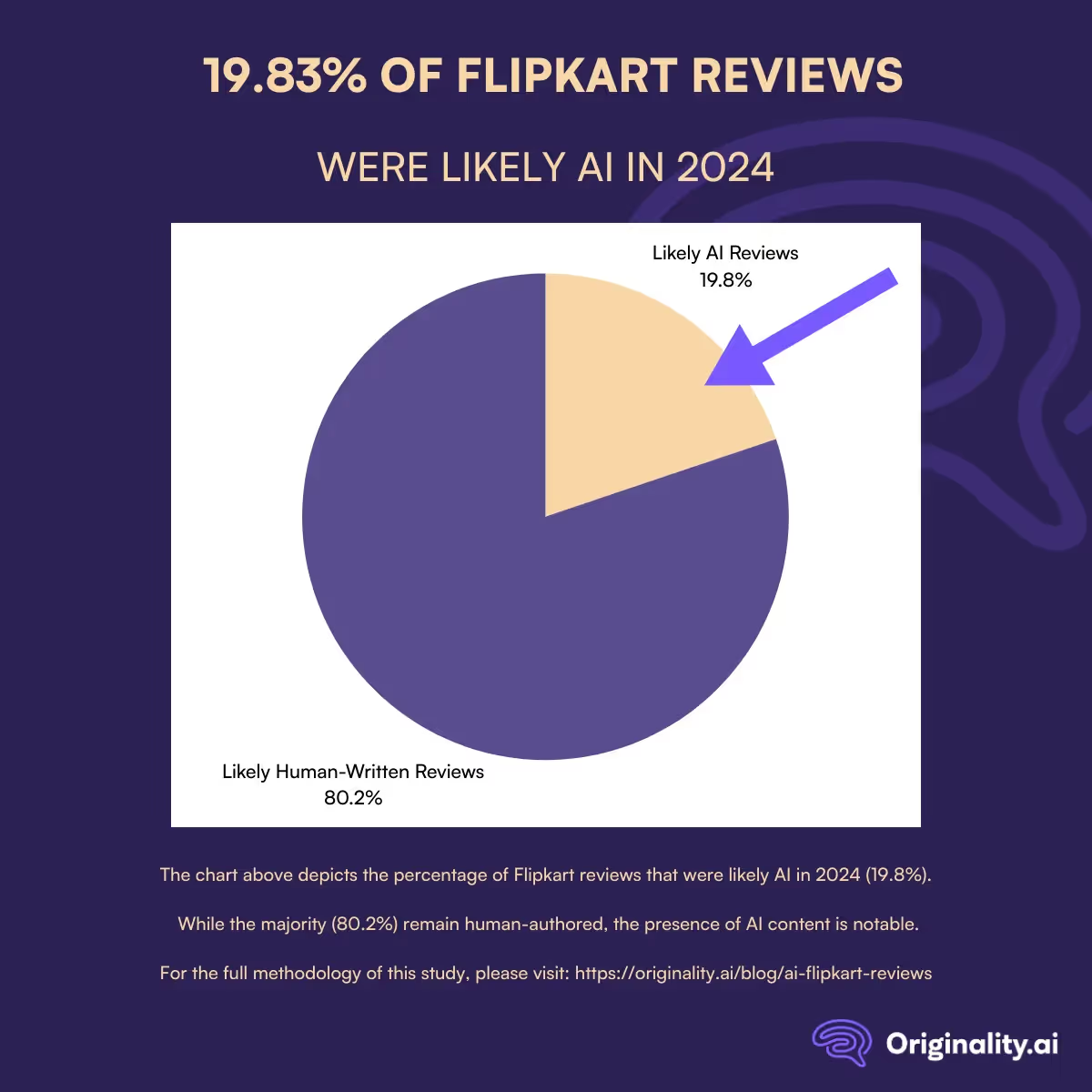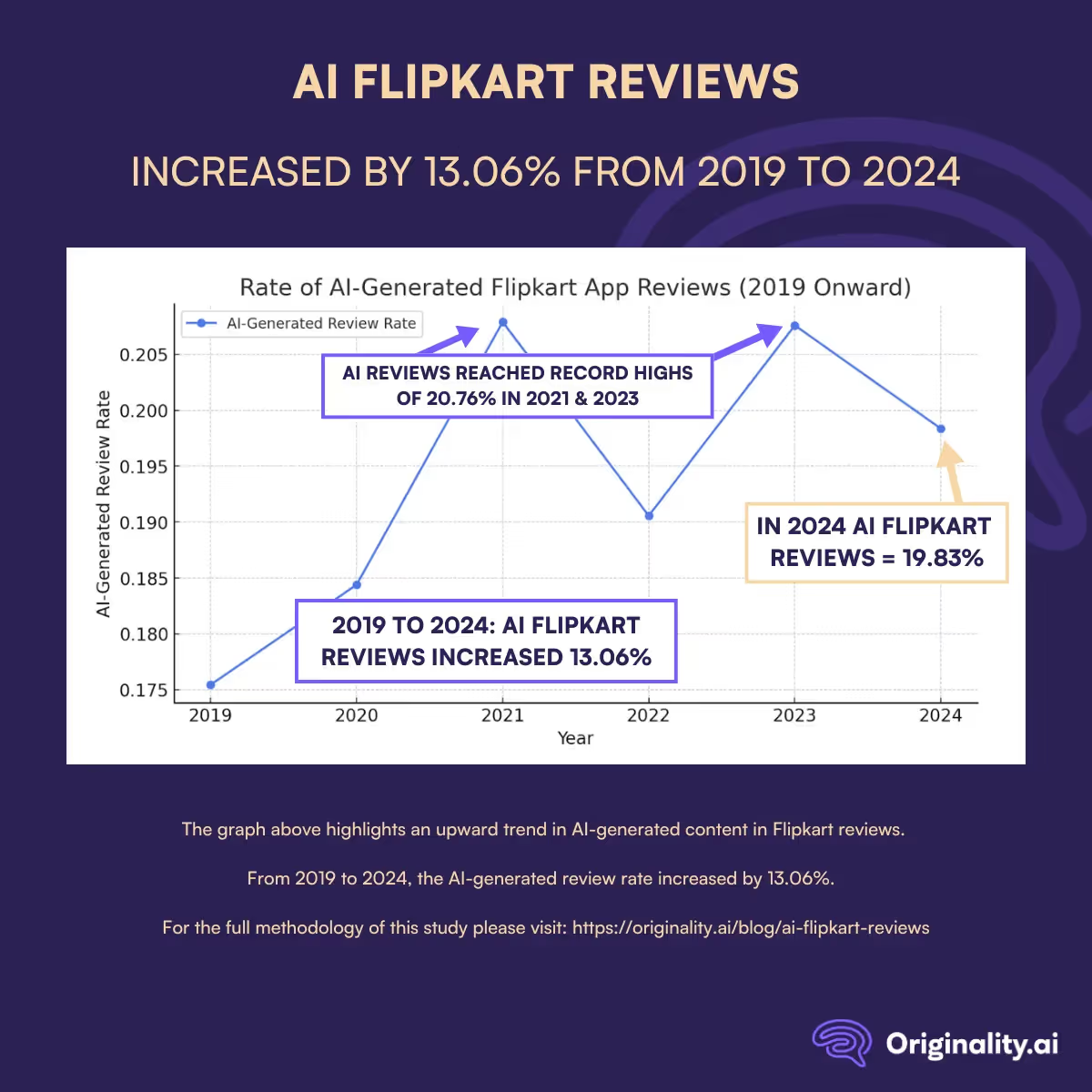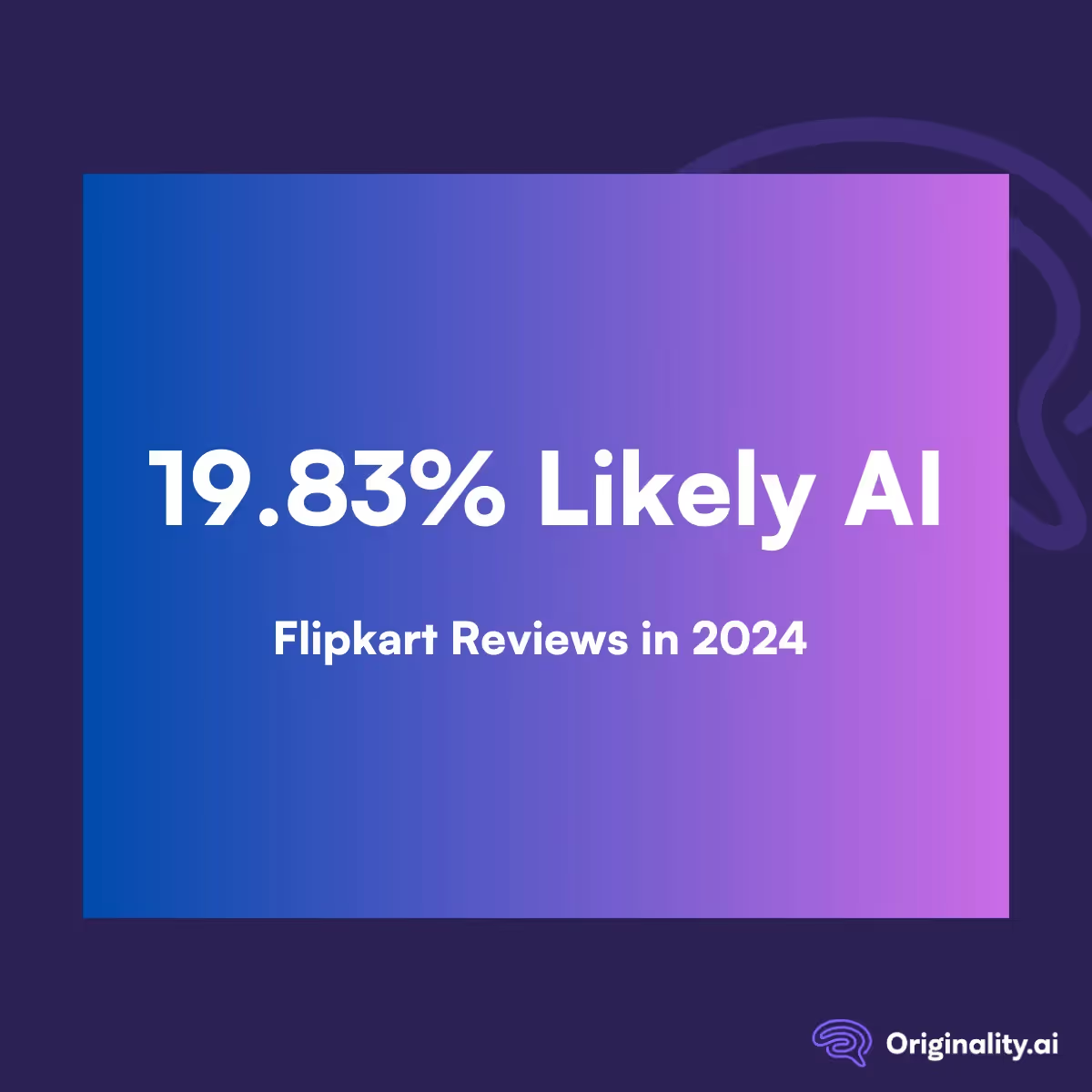Customer reviews play a central role in shaping consumer decisions. They can influence whether a purchase is made while contributing to trust and loyalty toward an online marketplace.
However, as technology advances, there is growing concern over the authenticity of online reviews across several platforms including the Alibaba Shopping App, AliExpress, Zillow, and TripAdvisor.
The emergence of AI-generated reviews (written by algorithms rather than real individuals) has raised questions about the credibility of feedback on popular platforms such as Flipkart, one of India’s largest online shopping apps.
This study aims to investigate the prevalence of AI-generated reviews on the Flipkart platform.


The analysis of AI-generated Flipkart app reviews from 2019 to 2024 reveals a steady upward trend in the use of artificial intelligence tools for crafting user feedback.
This gradual but noticeable rise reflects a broader shift in digital behavior, where AI tools are increasingly integrated into everyday communication.

The gradual increase in AI reviews from 2020 onward suggests that users began incorporating AI tools pre-pandemic. Then, incremental growth was noticeable as access and awareness of generative AI tools expanded (such as with the 2022 launch of ChatGPT).
The increase by 2024 may be attributed to the widespread availability of sophisticated generative AI models, mobile integration, and perhaps changes in user interface or incentives encouraging review submissions.

For Flipkart and similar platforms, this trend raises questions about the authenticity and credibility of reviews.
While AI-generated reviews may still reflect genuine user sentiment, their increasing presence necessitates the development of more advanced AI detection systems and transparency mechanisms.
Flipkart users may be leveraging AI-generated content to write more polished reviews, or in some cases, automated systems may be generating feedback without direct user input.
While the changes are not as abrupt as seen in some platforms, the pattern indicates growing comfort with and reliance on generative AI technologies in India’s digital consumer ecosystem.
Understanding this shift will be crucial for maintaining trust in the review ecosystem and ensuring that future users can distinguish between human experiences and AI-augmented narratives.
These results offer valuable insight into the extent of AI influence in online marketplaces and highlight the need for closer scrutiny of the content that shapes consumer perceptions.
Our findings suggest that a notable portion of Flipkart reviews exhibit characteristics consistent with AI generation.
The ability of AI-generated text to mimic human language convincingly poses a unique challenge for online platforms that rely on user trust and transparent feedback systems.
As e-commerce continues to grow in scale and sophistication, platforms like Flipkart must:
Are you unsure if a review or post you’re reading is human-written or AI-generated? Use the Originality.ai AI detector to find out.
Read more about the impact of AI on online platforms:
This study assessed AI-generated reviews on the Flipkart app using a computational approach with natural language detection tools. Reviews were analyzed through the Originality.ai API, which detects AI-generated content.
The dataset consisted of publicly available Flipkart reviews in CSV format, containing fields like reviewId, content, score, and thumbsUpCount. Reviews with fewer than 50 words were excluded to maintain consistency. Each review was submitted to the API, which returned an AI-likelihood score and a binary classification of whether the review was AI-generated. A retry mechanism was used to handle connectivity issues.
Results were compiled with original review data and AI-detection metrics (ai_likely_score and is_ai_generated), and saved periodically to avoid data loss. The final data was exported into a new CSV for further analysis.
This automated methodology enables large-scale, reliable identification of AI-generated content in consumer reviews, forming the basis for subsequent trend analysis and platform governance discussions.

MoltBook may be making waves in the media… but these viral agent posts are highly concerning. Originality.ai’s study with our proprietary fact-checking software found that Moltbook produces 3 X more harmful factual errors than Reddit.